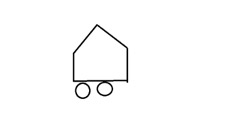Rocky Mountain Oysters
20 08, 15 15:57 Filed under: MorningMissive

I revere the humbled double-entendre euphemism above all other forms of language. It stands before us with it’s ‘flag at half-staff’ threatening without attacking propriety. It lives well South of obscenity and slightly North of innocence, implying more than it declares, leaving the listener culpable for any bad taste lingering after. It can relegate a promising politician to an alternate career ‘hiking down the old Appalachian Trail’ or sideline another into an eternal ‘wide stance’ without leaving any fingerprints at the scene. Properly employed, the messenger strolls away whistling from the crime scene without even a shred of toilet paper stuck to his shoe. Everyone knows full well he did it, but nobody ever lays a finger on him.
The best double entendres are angelic choir boys just beyond even the longer arm of any threatening priest. Their farts, silent but nonetheless deadly, their innocence preserved in spite of crystal clear intent. The joke never lands on them and nobody carries grudges away from the experience, but admiration instead. Such obviously clever usage deserves and almost aways gets a nodding appreciation. The euphemizer successful employs a technique common to every magician: misdirection. He points north while describing south, deliberately mangling an otherwise unwrinkled metaphor.
The euphemism might just be the most powerful way to say one thing while meaning quite another, and because of this, I worship these babies. Of course all speech employs metaphor and subtle simile, but no other usage quite so pleasingly, though even this noble form harbors a darker side.
Political correctness, a common euphemism for weasel talk, thrives on euphemism’s lowlier forms. In this shadow world, nobody ever dies, they ‘fade away’ instead. No booze can be found on the endless shelves of adult beverages. Nothing merely falling off a truck could ever be considered stolen. The powdered nose never shits. The lumberjack sawing logs never really rests. Between jobs, one might find a perfectly comfortable home on the streets, and anyone arrested receives beneficent accommodations in a handy correctional facility before reintegration into society.
We can, if willing and able, completely blunt any experience into mere powder puff. The lipstick on this particular pig beautifies nothing but serves instead to subtly separate selves from selves. Packed in cotton, suspended in inert fluid, we avoid a life as if it were simply too painful to live. Of course we’re living anyway. The reflection won’t just slink away. We look, instead, without seeing, love without feeling, cry without tears, and can leave without ever touching the place. Or being touched by it.
Is it really just too painful otherwise? I believe a world of difference lies between the clever, sardonic deployment of the noble euphemism and the cowardly, cynical use of it. The clever use enhances experience while the cowardly distracts. The clever increases while the cowardly subtracts. The clever engages while the cowardly flees. When consulting, I often find people so buffered in protective euphemism that they cannot choose for themselves; their worldview so shriveled into a tiny dialect of permissible characterizations that they cannot see beyond their protective clown noses. My job then, of course, becomes to talk about whatever’s not supposed to be talked about, an outrageous and wholly unwanted intrusion into what’s explained as safety but experienced as insidious imprisonment.
It serves no one to respect these boundaries. They silently scream for verbal violation. I never care to inflict, but I inflict because I care, because they asked me to help never expecting that they could probably better help themselves if only they had words to describe what was happening. The infliction tends to be better than the affliction, though. I casually call that spade a spade then see what happens. Almost always, I hear an extended sigh of relief returned. An unspeakable rendered no longer unspeakable. One more sorry balloon burst.
Jerry Weinberg referred to these overly-protective euphemisms as Lullaby Language because of their narcotic effect. They put us to sleep. The wake up call need be neither jarring nor insistent, merely present. In that moment. It seems important to mention that these euphemism busters seem to work best when spoken from the perspective of ‘I’ rather than the point of view of ‘you.’ What they do is their business. I might offer my interpretation without assaulting theirs. What they don’t mention, I simply feature that just as if what is there is there.
There once was a man who couldn’t say “shit,”
and found himself absolutely covered in it.
When he tried to explain the source of that smell,
he could not tell, couldn’t even tell what he could not tell.
He lost several friends because if it,
you know, that it he could make no mention of, shit,
so he quit to become a hermit, who
wouldn't have to have any explaining to do.
The you-know-what he could not say
abides all over him to this day.
©2015 by David A. Schmaltz - all rights reserved
blog comments powered by Disqus


